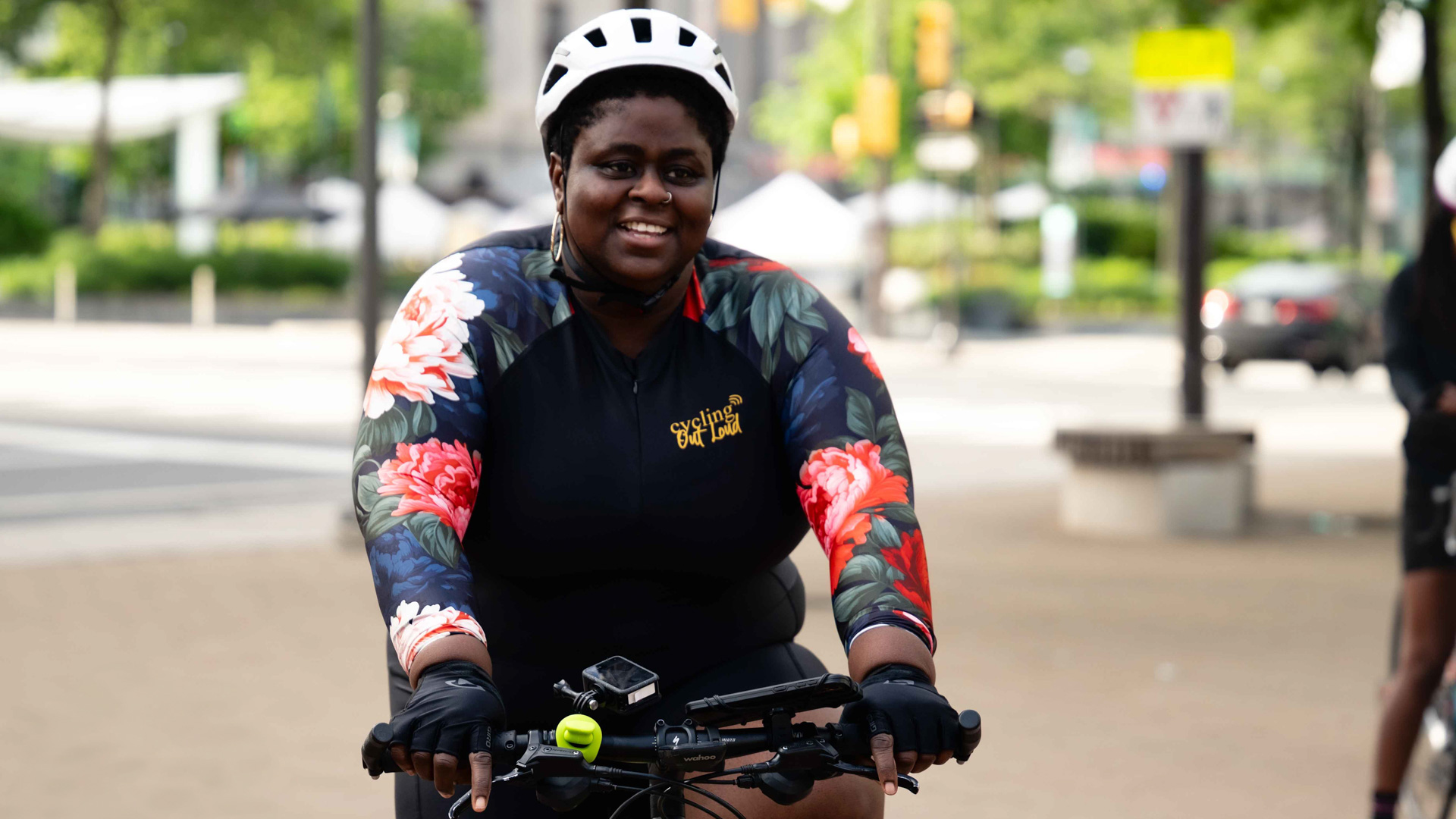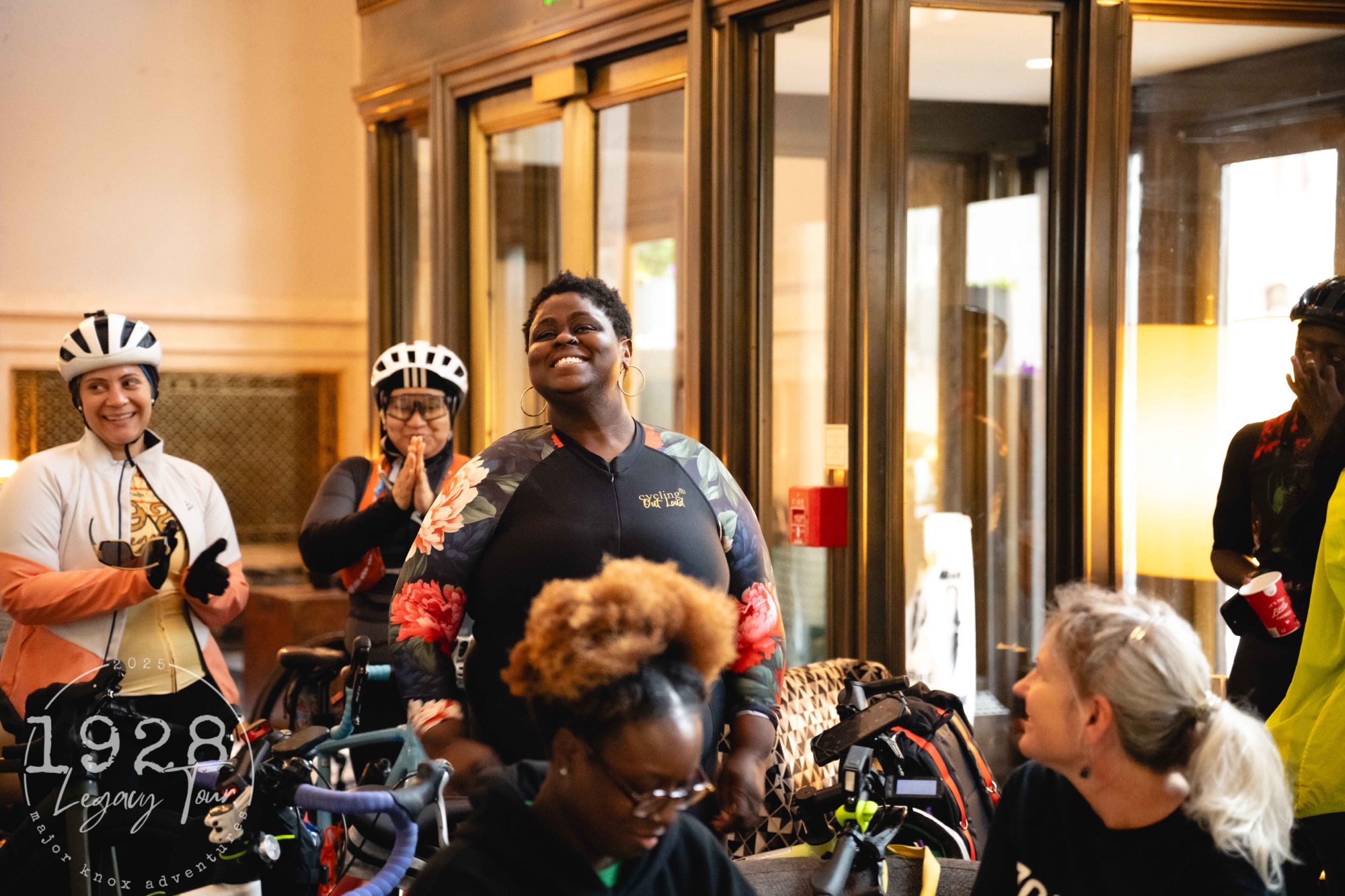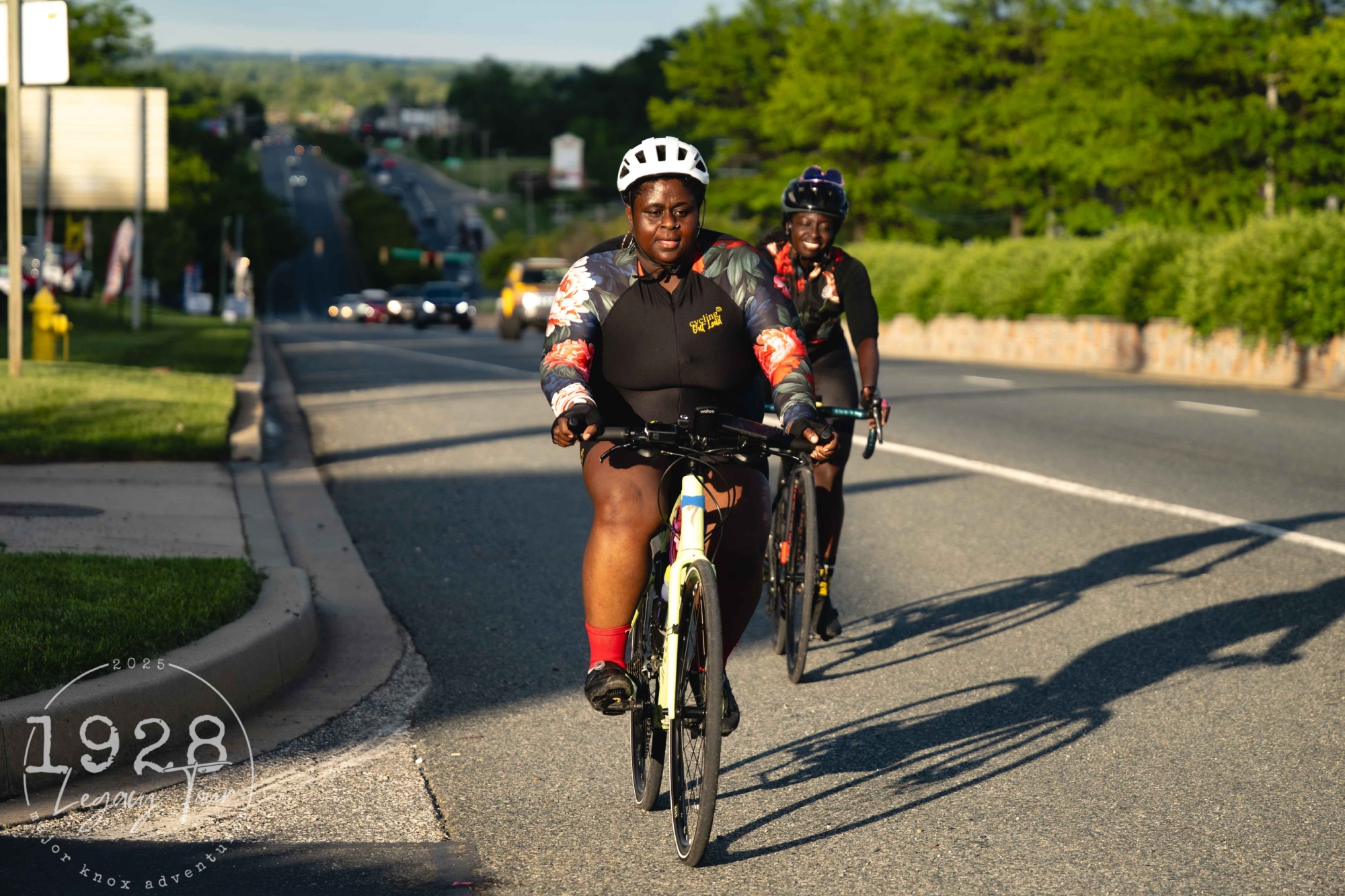You can’t call yourself a cycling community without fat Black women
And who gets to call themselves a cyclist, anyway?

I’m a new cyclist. I’m also a fat Black woman who just rode her first century ride. That sentence alone is not one you'll read very often. Because when I look around at the cycling world, I rarely see people who look like me.
And yet, I ride.
I, too, am part of the cycling community. Or am I? If we’re not talking about those on the margins, then we’re not truly talking about community. Community isn't just about who shows up, it's about who feels welcome, who’s invited, and who’s made visible. It’s about who has a voice and who’s being centered, not just tolerated.
Whenever you are at a table, whether it's a meeting, an event, or a casual group ride, take a moment. Look around. Then ask yourself: Who’s missing? Whose absence goes unnoticed? Whose stories aren’t being told? Because if we aren't being intentional about inclusion, then we are by default participating in exclusion.
To build a cycling culture that is complete and honest, we need to start telling more complete stories. Stories that reflect not only the mainstream narratives, but also the experiences of those who’ve been pushed to the margin, especially fat Black women, disabled riders, trans and queer cyclists, elders, and those who ride for joy, not just sport.
The story of cycling must include all of us those who ride fast and those who ride slow, those who ride for joy and those who ride out of necessity. That’s how we build a cycling community that’s not just diverse in theory, but inclusive and transformative in practice. This is my cycling story.

It started with a city bike.
I didn’t grow up thinking I’d be a cyclist. I wasn’t someone who poured over gear reviews or tracked miles in a fancy app. Like a lot of people, I got back on a bike during the pandemic, in search of fresh air and a little peace. I didn’t even own a bike at first. I just borrowed the Indego bikes, the blue bike share bikes docked on corners all across Philly.
The latest race content, interviews, features, reviews and expert buying guides, direct to your inbox!
Something about those first rides stuck with me. The breeze on my face. The way the city unfolded block by block. It wasn’t long before I started inviting other Black women to join me. We didn’t have matching kits or carbon frames, but we had laughter, shared playlists, and sisterhood. In 2023, I launched Black Girl Joy Bike Ride, a cycling group where Black women could show up exactly as we are. If you didn’t have a bike? We’d get you one. If you’d never ridden far? No pressure. We moved at the pace of joy.
But it wasn’t until 2024, when I was invited to the Philly Bike Expo, that I truly saw what I had already been feeling: even inside “inclusive” spaces, I was still on the margins. As a fat Black woman, I was used to not being seen. But here, in the cycling world, I was nearly invisible. That invisibility is part of a larger pattern. Cycling, as it’s often portrayed, still centers on thin white men in spandex. But the reality? People of every size, gender, and race ride bikes. Still, so many cycling clubs feel exclusive, competitive, and closed off, like there’s a checklist you have to pass before you’re considered a “real” cyclist.
And I’ve felt that exclusion. I’ve been dropped from group rides because I was “too slow.” I’ve shown up as the only Black person—or the only fat person. I’ve even been turned away from a supposedly “BIPOC” training program for being too much of a beginner. Each time, the same question echoed in my mind: Who gets to call themselves a cyclist?
Who gets to call themselves a cyclist?

I’ve come to this answer: If you ride a bike, you’re a cyclist. It doesn’t matter your size, speed, or how much your bike costs. You belong. I belong. Yes—I’m Black. Yes—I’m fat. Yes—I’m a woman. And yes, I am a cyclist.
In 2024, I took a leap and applied to be part of the All Bodies on Bikes cohort to ride in the Mid South gravel race. I got in. It was my first time buying a bike of my own. My first race. My first time training with a team. I pushed myself. Hard. Early morning rides through cold Philly streets. Long stretches of solo miles. Hills that left my thighs burning. I was ready. Then, just days before the event, we got the news: Mid South was canceled due to wildfires. I was devastated. I had trained for months. I had dreamed of crossing that finish line. For a moment, I wondered if this was a sign; maybe endurance cycling wasn’t for me.
But then, something beautiful happened.
Keshia Roberson, a fellow Philly native and founder of the 1928 Legacy Tour, reached out with an invitation. She was organizing a ride from Philadelphia to Baltimore—a tribute to five Black women who rode from Harlem to DC in 1928. A full century ride. She believed I could do it. She believed I could inspire others like me.
With just under two months to train, I said yes. I rode long miles. Clipless pedals for the first time. City traffic. Nerves. Courage. And every day, the same reminder: this ride matters. On May 24th, I woke up at 4 a.m. and met the riders downtown. That morning, I wasn’t on the margins. I was surrounded by other Black women cyclists. I was part of the center. But as we pushed on, it became clear that I was the slowest. While others cruised at 14–18 mph, I averaged 9–11mph. Doubt crept in. Was this too much for me? But then Yasmin Boakye, my mentor, rode beside me and said something I’ll never forget: “This is your ride. Your journey.”
And I remembered: the biggest room I’ve ever been in is the room for growth. That day, I gave myself permission to take up space. To go at my own pace. As the sun began to set, organizers made the call to pull us off the route for safety. I had ridden nearly 80 miles. But I wasn’t done.
Later that night, after dinner, Keshia, our mechanic Em, and I rode the final miles together around Lake Montebello in Baltimore. The clock crept toward midnight. At 101 miles, I looked down at my bike computer. I had done it.
Now, be honest—do you see me as a cyclist? Probably not. Because the image you’ve been taught to associate with cycling is narrow, fast, lean, white, male, elite.
But this is what cycling looks like too: Slow joy. Unwavering courage. Fat Black women showing up and showing out.
The MidSouth may have been canceled, but I still rode my 100 miles. At times alone, but not invisible. With every pedal stroke, I claimed space. I made space. For myself, or those who’ve been overlooked, underestimated, or simply not invited. Because that’s what community really is. Not just who crosses the finish line first, but who you make space for along the way. Who you choose to see. Who you decide is worthy of being part of the story.
This is cycling too and we’re not waiting for permission to belong. We’re already here.
I’ve come to believe, fiercely and unapologetically, that confidence is a form of resistance. As a mental health professional, an organizer, and a fat Black woman, I’ve built my life around helping others live joyful, beautiful lives. And every time I speak up about the gaps in cycling, every time I show up fully and visibly, I push back against a world that tried to erase me.
When you’re not reflected in a space, it’s easy to doubt whether you belong. But I’ve learned I don’t need anyone’s permission to exist. I just need the courage to see myself clearly and to let others see me too. When I let what’s true inside me shine, it becomes an offering—not just to myself, but to every fat Black woman who is still searching for her joy on a bike.
We still have a long way to go. We’re still fighting for access, equity, and inclusion in cycling.
But in the meantime? I dream without limits. I get on my bike. I ride. I bring Black women with me. And I find joy in every mile. There is so much joy in cycling, and it grows every time a fat Black woman takes the lane and refuses to disappear.
Iresha Picot, M.Ed, LBS, is the founder and ride leader for Black Girl Joy Bike Ride, a bicycle accessibility group for Black Women in Philadelphia. Black Girl Joy Bike Ride was named Philly magazine’s “Best reason to get back on a bike” for 2024.
Iresha has spent 16 years working in behavior and mental health as a Licensed Behavior Specialist and Therapist. And she's is the co-editor of the book “The Color of Hope: People of Color Mental Health Narratives. ”
You must confirm your public display name before commenting
Please logout and then login again, you will then be prompted to enter your display name.